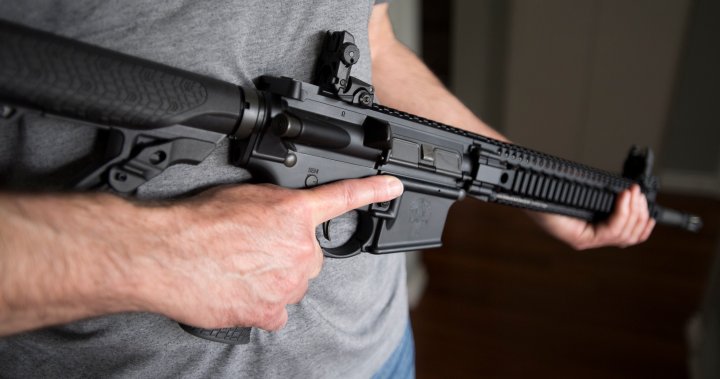
Criminal Code must be amended in assault-style firearms ban, advocates say. Why?
Global News
Ottawa has floated the idea of legislation that would create an evergreen framework for classification of firearms to ensure federal intentions on banned guns are respected.
Advocates who led the push to ban an array of assault-style firearms are telling federal lawmakers that government regulations prohibiting these guns are being circumvented by Canadian manufacturers.
In a letter sent this week, gun-control group PolySeSouvient urges MPs to support amending the definition of prohibited firearm in the Criminal Code to include all current and future guns that fall into the category.
The Liberal government banned some 1,500 models and variants of firearms, including the AR-15 and Ruger Mini-14, through an order-in-council in May 2020 on the grounds they have no place in hunting or sport shooting.
A planned buyback program would require owners to either sell these firearms to the government or have them rendered inoperable at federal expense.
PolySeSouvient says that without a clear Criminal Code definition of assault-style firearms, Canada will be stuck with the kind of failed approach that led to the proliferation of tens of thousands of such guns in private hands following bans in the 1990s.
The group includes students and graduates of Montreal’s Ecole polytechnique, where a gunman killed 14 women in 1989.
The letter is signed by group spokesperson Nathalie Provost, who was shot during the rampage, Suzanne Laplante-Edward, whose daughter was killed, and Heidi Rathjen, a graduate of the school and co-ordinator of PolySeSouvient.
It says that earlier this year the RCMP granted a non-restricted classification to the Lockhart Tactical Raven 9, a semi-automatic carbine manufactured in Canada. Other recently introduced semi-automatics unaffected by the ban include the Sterling Arms R18 Mk.2, the Crusader 9 and the RS-Q2 Osprey.











